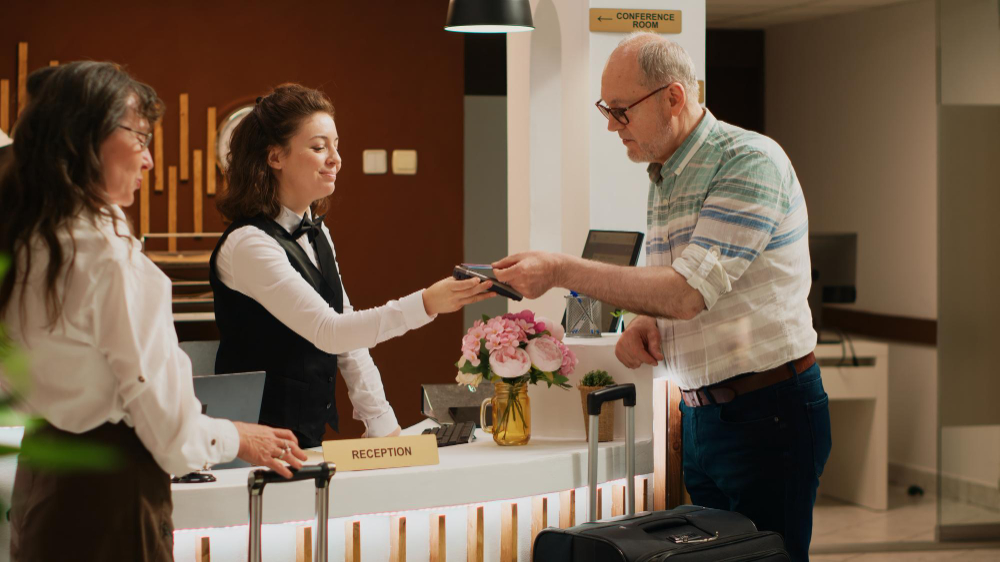Reimagining Hospitality: How Hotels Are Adapting Technology to a New Era of Guest Expectations

The hospitality industry is at a pivotal moment, rapidly evolving to meet diverse guest preferences in an increasingly competitive and dynamic world. Across different hotel categories—Luxury Hotels, Budget Hotels, Boutique Hotels, and Extended Stay Hotels—innovative strategies are redefining how travelers experience comfort, convenience, and personalization.
Moreover, Virtual Delivery Centers (VDCs) are emerging as a critical tool for hotels to optimize operations, enhance customer experience, and integrate advanced technology solutions efficiently. This article explores how different hotel segments are transforming while leveraging VDCs to maintain a competitive edge in the evolving hospitality landscape.
Luxury hotels have long been synonymous with opulence and exclusivity. However, modern luxury travelers now demand more than grandeur—they seek personalization, sustainability, and cutting-edge technology.
Key Trends Shaping Luxury Hotels:
Personalization at Scale – Tailored guest experiences, from customized room settings to curated itineraries, are becoming the norm.
Tech-Infused Opulence – AI-powered concierge services, smart room automation, and VR previews are elevating high-end hospitality.
Sustainability as a Value Proposition – Carbon neutrality, renewable energy adoption, and sustainable gastronomy are driving eco-conscious luxury.
Challenges for Luxury Hotels:
Maintaining a balance between technological innovation and human-centric service.
Navigating economic fluctuations impacting high-end travel demand.
Differentiating amidst an increasingly saturated ultra-luxury market.
The budget hotel segment has evolved beyond no-frills accommodations, embracing modern amenities and sustainability to attract cost-conscious travelers.
Transformations in Budget Hotels:
Modern Amenities – Free Wi-Fi, self-check-in kiosks, and communal spaces enhance convenience.
Strategic Locations – Proximity to transit hubs and major attractions increases accessibility.
Sustainability on a Budget – Energy-efficient lighting, waste reduction programs, and green certifications showcase affordability with responsibility.
Challenges for Budget Hotels:
Competing with vacation rentals and alternative accommodations.
Managing rising operational costs without sacrificing affordability.
Enhancing guest experiences while maintaining low prices.
Boutique hotels are gaining popularity by offering distinct, immersive experiences that reflect local culture and design.
What Sets Boutique Hotels Apart:
Bespoke Design – Unique architecture and artistic interiors enhance brand identity.
Cultural Integration – Locally inspired cuisine, art, and traditions create authentic experiences.
Exclusive Events – Curated activities such as wine tastings and art workshops foster community engagement.
Challenges for Boutique Hotels:
Balancing high operational costs with competitive pricing.
Competing with global chains introducing boutique-style experiences.
Adopting technology while maintaining the personalized guest experience.
Extended stay hotels cater to long-term travelers, business professionals, and digital nomads by blending hotel amenities with home-like features.
Unique Features of Extended Stay Hotels:
Spacious, Functional Design – Suites with full kitchens and living spaces enhance comfort.
Flexible Pricing Models – Discounts for long-term stays improve affordability.
Work-Life Balance – High-speed internet, co-working spaces, and networking lounges cater to remote workers.
Challenges for Extended Stay Hotels:
Competing with serviced apartments and vacation rentals.
Adapting to the growing segment of digital nomads.
Maintaining affordability while offering premium services.
Technology is reshaping every segment of the hospitality industry, improving guest experiences and operational efficiency.
Key Technological Trends:
Contactless Solutions – Digital check-ins, keyless entry, and mobile concierge apps.
Smart Rooms – IoT-powered customization for lighting, temperature, and entertainment.
AI and Big Data – Predictive analytics for hyper-personalized guest services.
Sustainability Tech – Smart energy systems and waste management solutions.
Sustainability: A Shared Priority
Hotels across all categories are integrating sustainability into their operations, responding to eco-conscious travelers.
Sustainable Initiatives Across Segments:
Luxury hotels adopting renewable energy and carbon-neutral practices.
Budget hotels implementing cost-effective green solutions.
Boutique hotels sourcing local materials and embracing eco-friendly design.
Extended stay hotels focusing on energy conservation and resource efficiency.
Virtual Delivery Centers (VDCs) are revolutionizing hotel management by enabling seamless access to technology, talent, and innovation.
How VDCs Empower the Hospitality Industry:
Technology Integration – Hotels can implement guest management systems, IoT, and AI-driven tools with ease.
Sustainability Projects – VDCs help hotels achieve green certifications and eco-conscious operations.
Operational Optimization – Streamlining non-core functions like marketing, IT, and project management.
Talent as a Service – Access to specialized professionals for technology upgrades and strategic initiatives.
Hotels leveraging VDCs gain a competitive edge, optimizing operations while enhancing guest experiences.
Personalization Across Price Points – Guests expect tailored experiences, regardless of budget.
Wellness Integration – Yoga retreats, spa services, and health-focused dining options are rising in demand.
Hybrid Spaces – Hotels are blending accommodations, co-working, and leisure spaces.
Experiential Travel – Travelers seek unique, immersive local experiences.
Digital Nomad-Friendly Stays – Hotels are adapting to accommodate the growing remote workforce.
The hospitality industry is experiencing a profound transformation, with hotels across all segments redefining their offerings to meet modern guest expectations. By integrating technology, embracing sustainability, and leveraging Virtual Delivery Centers, hotels can enhance efficiency, boost innovation, and provide exceptional guest experiences.
As the industry continues to evolve, those who prioritize innovation, guest-centric strategies, and sustainability will lead the way in shaping the future of hospitality.
Are you ready to optimize your hospitality operations? Discover how Virtual Delivery Centers and cutting-edge technology solutions can transform your business today.

For modern telecom enterprises, delivering exceptional QoS is no longer optional—it’s a brand differentiator and a strategic lever for growth. Static provisioning models won’t cut it in a world of hyper-dynamic data usage.